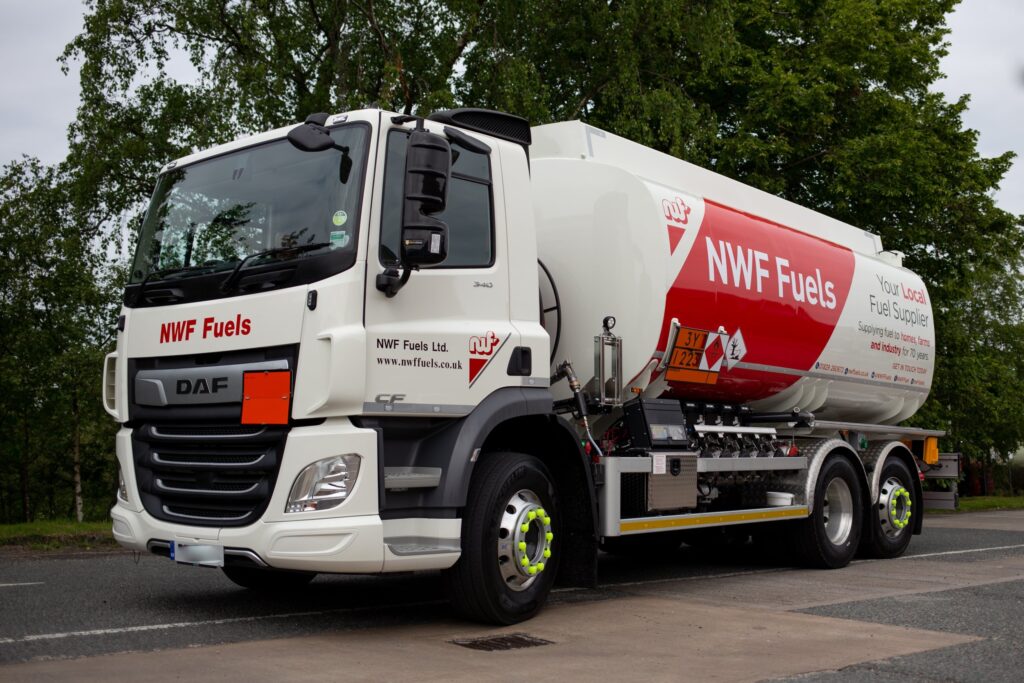Update: 15th March 2023
Following an entitlement amendment dated from 15th March 2023, we are now able to supply rebated red diesel for the following uses:
- Premises where the primary purpose is heating non-commercial properties but, to some extent, are used for commercial purposes. This includes accommodation used part-time for bed and breakfast and district heating networks that primarily supply non-commercial premesis
- Arboriculture for all forms of tree work that were applicable for rebated diesel before April 2022 including machines and appliances (excluding vehicles) with a use relating to horticulture such as tending parks and gardens
- Lifeboats and for generating heat and electricity in lifeboat stations, but not in tractors and gear used to launch and haul lifeboats from the water
What is changing with the gas oil duty changes?
In March 2021, the UK Government announced gas oil duty changes, which mean that as of the 1st April 2022 the rules on the tax relief of red diesel are changing.
The revision to the current taxation means that many sectors that use red diesel will no longer receive tax relief and will be required to switch to an alternative fuel such as white diesel (DERV), or a greener product in HVO30. Organisations previously using red diesel for commercial heating will also have the option of Prem35.
As of the 1st April 2022, many sectors will now need to use an alternative to red diesel, as they are now being forced to use a different fuel that is taxed at the standard rate for white diesel.
The laws are changing as part of the UK Governments push to achieve a net zero emissions target by 2050. The changes are to encourage the development and usage of cleaner, more sustainable fuels and while this is a positive environmental step it does present a challenge to a wide range of sectors and businesses.
Many businesses may have assessed their usage and planned their transition to an alternative following the gas oil duty changes, but we are aware that there are others that are unsure of whether they remain exempt or not and what the financial implications are to their business in having to switch from red to white diesel.
Who will be affected by the changes?
We are here to help shed light on some of the grey areas surrounding the upcoming changes. If you currently use red diesel in machinery, generators or for heating purposes in the following sectors you will be affected by the changes.
- Construction, mining, and quarrying
- Manufacturing
- Plant hire, transportation/ logistics, waste management
- Highway maintenance
- Airport activities
- Ports and harbour activities
From the 1st April 2022 we will only be able to supply red diesel to your business if that application is for the sole purpose of the following
- Agriculture, horticulture, forestry, fishing and arboriculture*
- Flood and snow clearance including gritters
- Propulsion of passenger, freight, and maintenance vehicles on rails
- Propulsion of commercial boats including passenger ferries, water freight and lifeboat charities*
- The powering of machinery (including caravans) of travelling fairs and circuses
- Heating and electricity generation for non-commercial premises including homes, places of worship, NHS hospitals, townhalls and permanently moored houseboats*
- Amateur sports clubs and community sports centres, golf courses (including activities such as ground maintenance, and the heating and lighting of clubhouses, changing rooms etc.)
*Following an entitlement amendment dated from 15th March 2023, we are now able to supply rebated red diesel for these uses.
For a full list of sectors and exemptions of use for red diesel you can check on the Gov.uk website or check with HMRC to confirm your exemption status.
Changing to an alternative – what does that mean?
Red diesel is currently used by a number of industries in machinery and equipment, and it makes up for around 15% of the diesel that is used in the UK. However, users currently only have to pay 11.14p per litre as a duty rate in contrast to the 57.95 ppl for white diesel. This means that these sectors are going to miss out on making a saving of 81% when they make the switch. For those sectors that are going to need to make the switch to white diesel then they are clearly going to miss out on savings.
Failing to comply with the regulatory changes can result in heavy fines. It is therefore recommended that your business starts to plan for the transition if you are going to be affected. Here a just a few things to consider:
- If you stock red diesel for an application that will be affected by the changes you will need to run the stock down before the 1st April deadline. There is no grace period after this date.
- Retain proof of purchase for red diesel to prove that you have not stockpiled red diesel for the intended use after the 1st April
- You may require an additional tank to store white diesel and avoid cross contamination of red and white diesel products
- If you intend to use the same tank for storing white diesel that once held red diesel, you may be required to flush the tank and supply lines before the 1st April
- Check the condition and security of your tanks. Many businesses are targeted for their fuel and fuel theft is expected to increase as more switch from red to white products.
- Fuel usage and efficiency can be monitored by using a telemetry device. We can provide the latest radar unit technology to monitor tank levels and set up alerts when running low. This can also help alert you of leaks or theft too
We do offer and can assist in the clearing of tanks and lines if this is something you feel you may need assistance with.
What are the alternatives following the gas oil duty change?
Once you have assessed whether your business will be affected now is the time to start planning the switch to an alternative. We have a wide range of products that are suitable replacements:
- Standard White Diesel (Derv)
- HVO30 – A blended drop-in replacement consisting of 30% Hydrotreated Vegetable Oil (HVO) and white diesel offering a cleaner alternative
- Prem35 – an efficient replacement fuel for commercial heating applications in boilers or burners. Prem35 is a cost-effective alternative
Please call your local depot and speak to one of our experts for more information on any of the alternative products. We are here to help you and your business manage the transition if required.
Contact Us Now
At NWF Fuels, we’re committed to keeping you informed and helping you make informed decisions. Take advantage of our expert knowledge and experience in the fuel industry. Our team is here to answer your questions and provide tailored solutions that align with your specific needs.
Don’t miss out on the opportunity to optimize your fuel strategy and maximize savings. Get in touch with us today by calling 01829700120 and let us navigate the complexities of gas oil duty changes for you. With our trusted guidance, you can stay ahead of the game and stay focused on what matters most – growing your business.
Get a free online quote here.
More information
Gov UK – Reform of red diesel and other rebated fuels entitlement
https://www.gov.uk/government/publications/reform-of-red-diesel-entitlements/reform-of-red-diesel-and-other-rebated-fuels-entitlement
Related articles
Are Premium fuels worth it?
Hydrogenated Vegetable Oil (HVO)
FAQS – Kerosene







